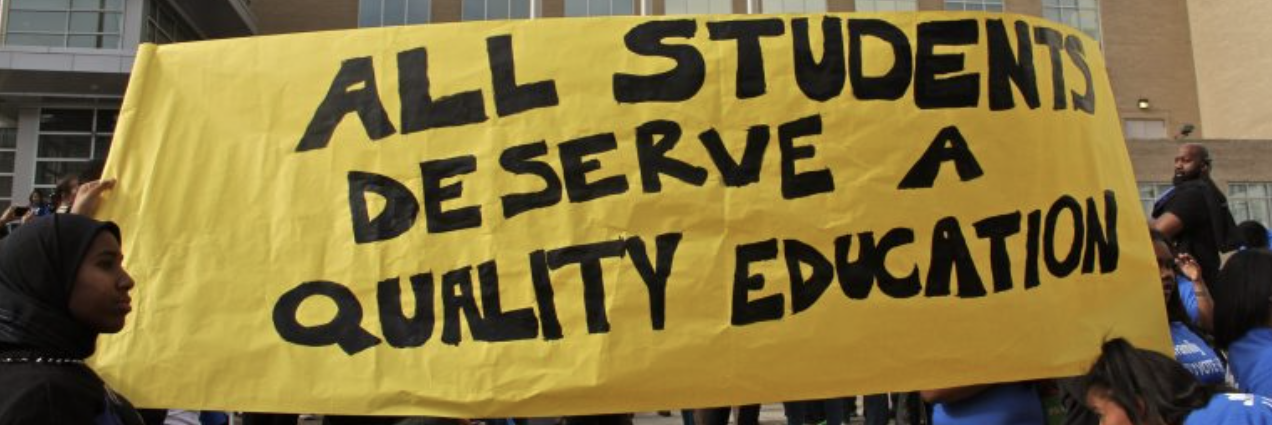There are many grassroots organizations still addressing the school closures in Philadelphia that occurred from 2012-2014. For this case study, I will be centering youth voices who organized within the grassroots organization Youth United for Change in Philadelphia. Youth United for Change is “an organization made up of young people acting on their behalf to improve public education quality. YUC is building a youth-based, democratic organization with the power to hold school officials and government accountable to meet the educational needs of Philadelphia public school students.” In early February, following the school closures, “youth leaders with the Philadelphia Student Union (PSU) and Youth United for Change led a citywide assembly to talk about education in Philadelphia and what students can do to protect and fight for their public schools.” In addition to this, students from Youth United for Change mobilized a citywide walkout. Thousands of students within the school district partook in a walkout for education funding. Youth United for Change along with other students led organizations “were at the forefront of recent organizing efforts to protest and propose alternatives to the shuttering of 23 schools, the firing of 3,859 educators and support staff, and the elimination of extracurricular programs and arts education from the public schools for the 2012-2013 school year.”
It is very apparent that Youth United for Change embodies activism methods similarly to former educator and social justice activist Ella Baker. Ella Jo Baker was an educator, community organizer, and activist. Ella Baker’s aka Miss Baker’s activism and teaching style had an emphasis on participatory democracy, “group-centered leadership,” family socialism. Miss Baker sought “(1) an appeal for grassroots involvement of people throughout society in the decisions that control their lives; (2) the minimization of hierarchy and the associated emphasis on expertise and professionalism as a basis for leadership; and (3) a call for direct action as an answer to fear, alienation, and intellectual detachment” (Mueller 79). Furthermore, there are three common themes for Miss Baker’s ideas around participatory democracy: “grassroots involvement by people in the decisions that affect their lives; the minimization of hierarchy and professionalization in organizations working for social change; and direct action on the sources of injustice” (Mueller 82).
As it connects to Baker’s models of social change, this particular grassroots organization has historically centered the voices of Black youth within their respective communities. Within the organization, there is an emphasis on civic engagement and democracy. Miss Baker prioritized student-led activism and engagement. Baker’s “basic sense of it has always been to get people to understand that in the long run, they themselves are the only protection they have against violence or injustice… People have to be made to understand that they cannot look for salvation anywhere but to themselves.” (Baker qt 893). Furthermore, Youth United for Change embodies Bakers model for “participatory democracy.”
Youth United For Change’s vision followed a similar 3 tier approach: “ (1) To develop the leadership of youth from communities of color who are capable of leading and governing all of society, using grassroots organizing as the training vehicle. (2) To build an organization powerful enough to help create community-based power focused on maintaining the right of Black and Brown people to control their own lives. (3) To produce leaders who can organize their communities to change the structure of society towards justice for all people.”
Youth United for Change has made many attempts to reclaim public school education resources. It is important to see value in the work that people directly in the community are doing by uplifting their voices rather than speaking over them. As Miss Baker and the organizers at Youth United for Change acknowledge, social justice activism is continuously evolving. Organizers have to rid their activism of traditional leadership concepts of progressing actively.
